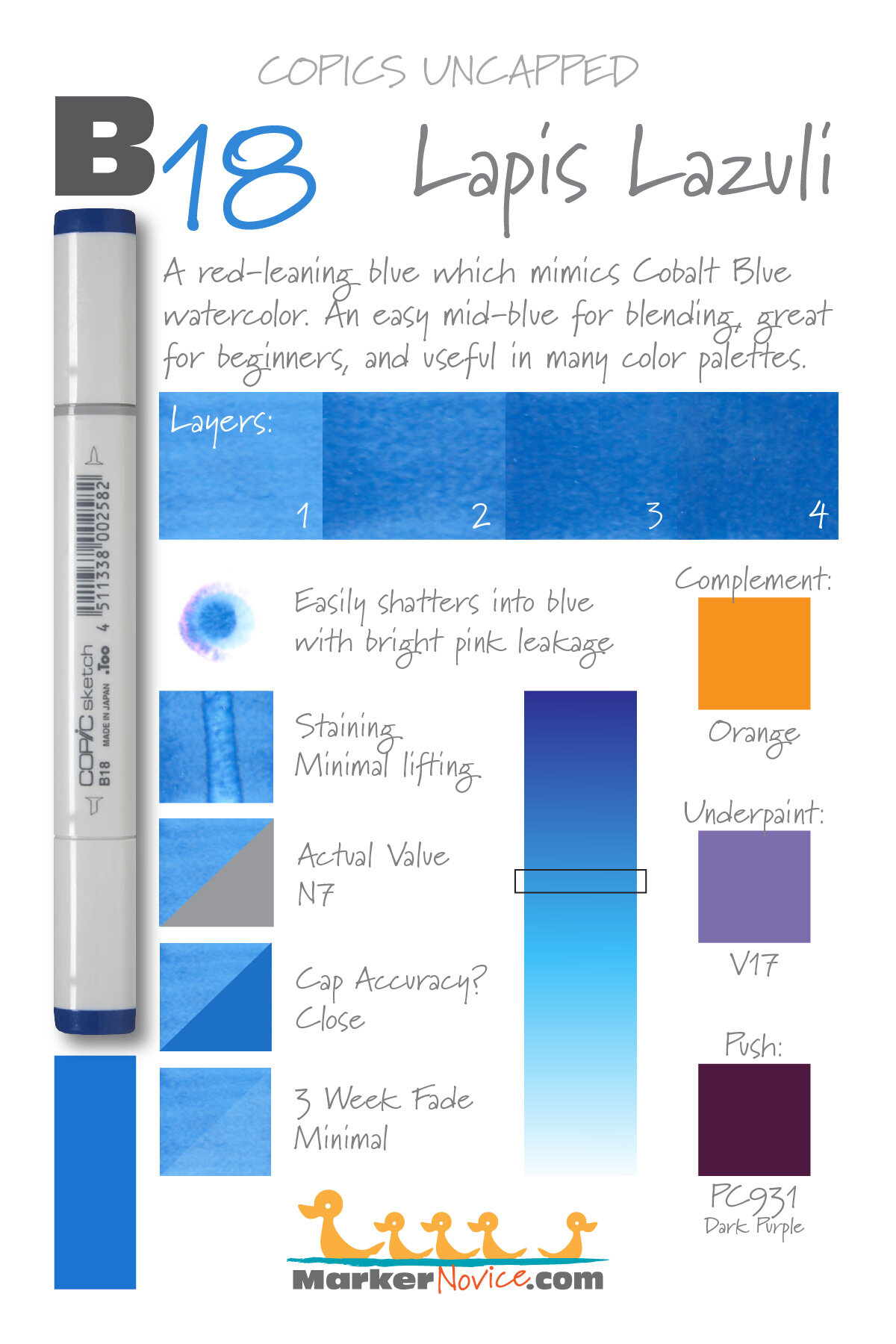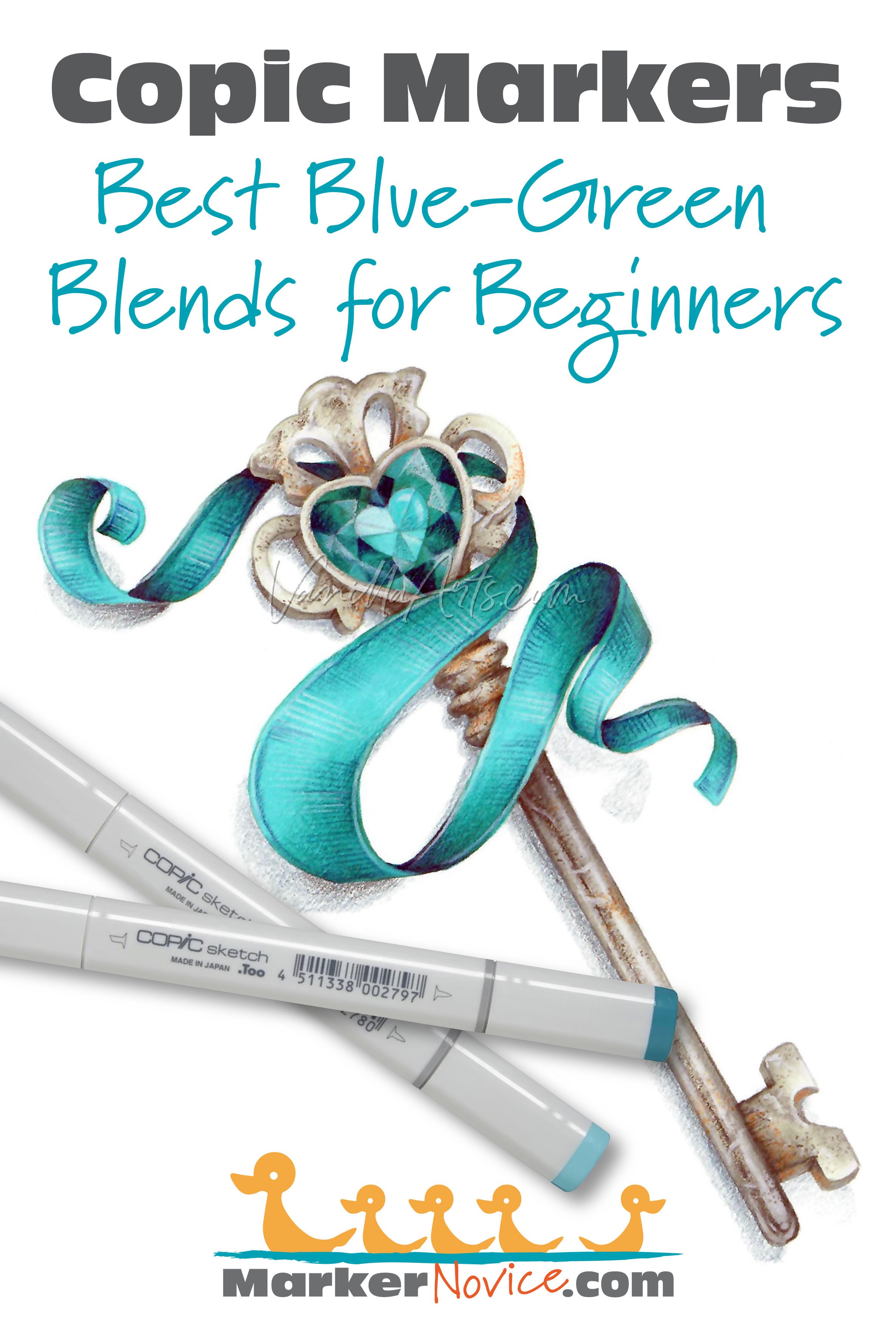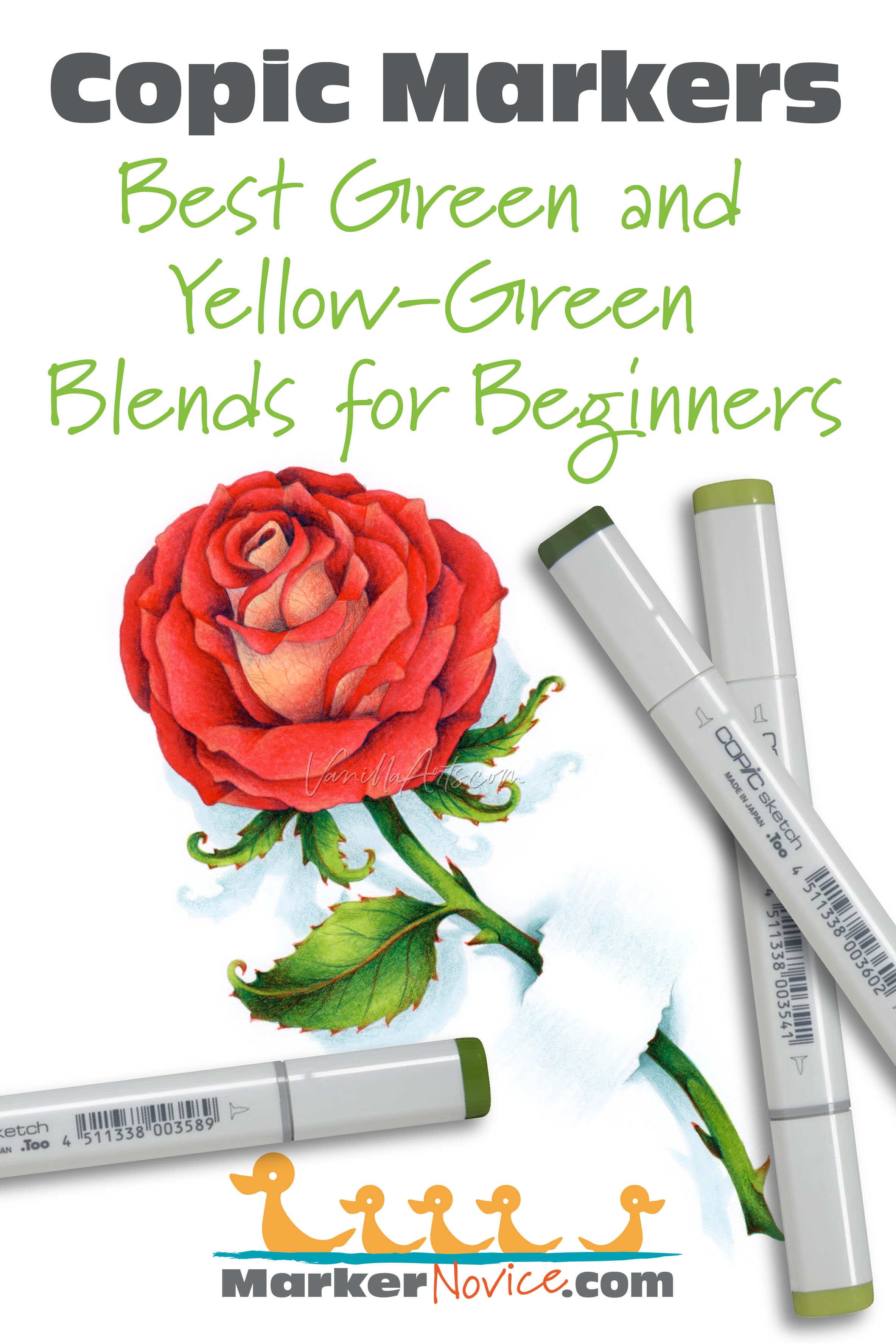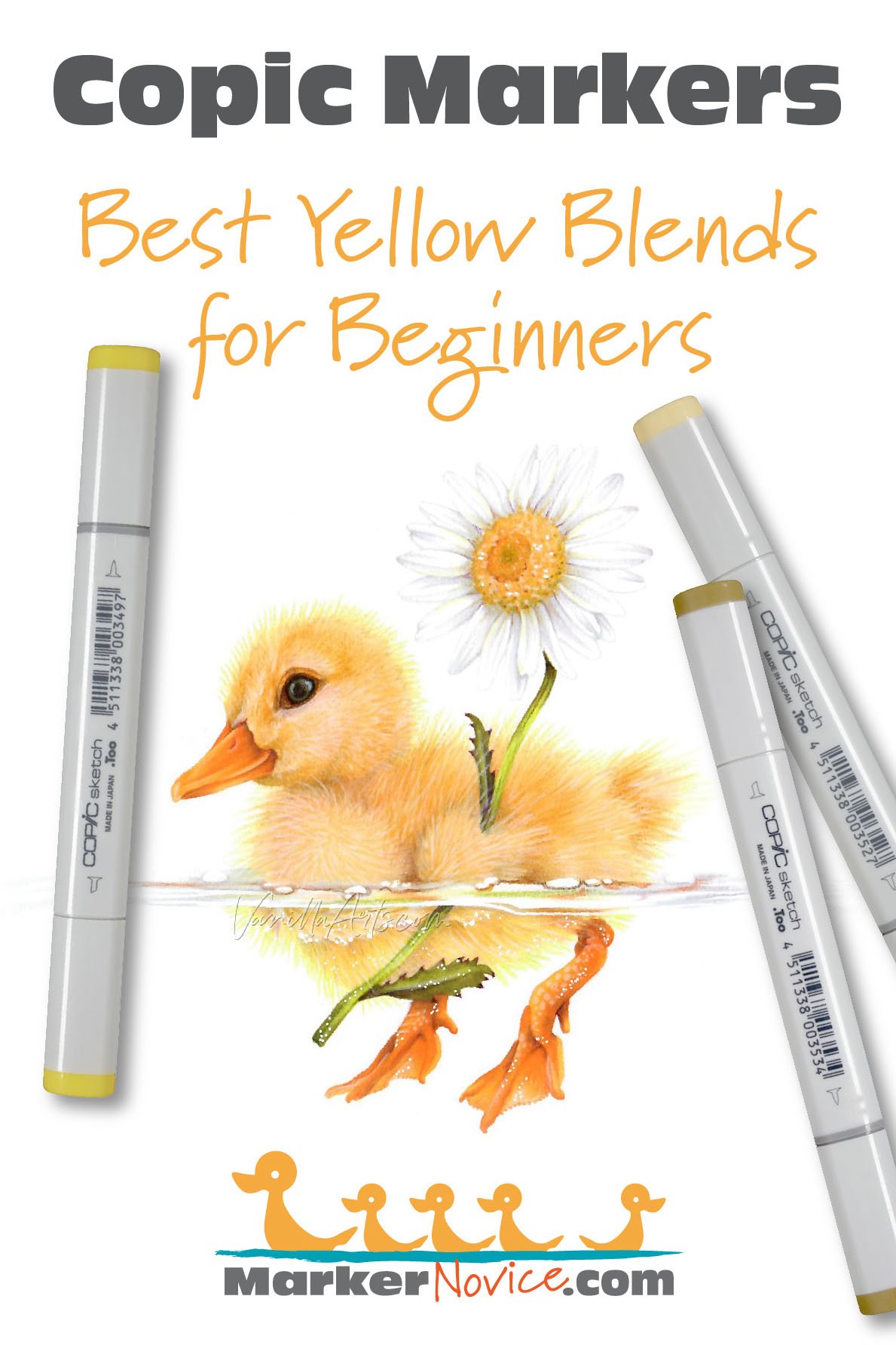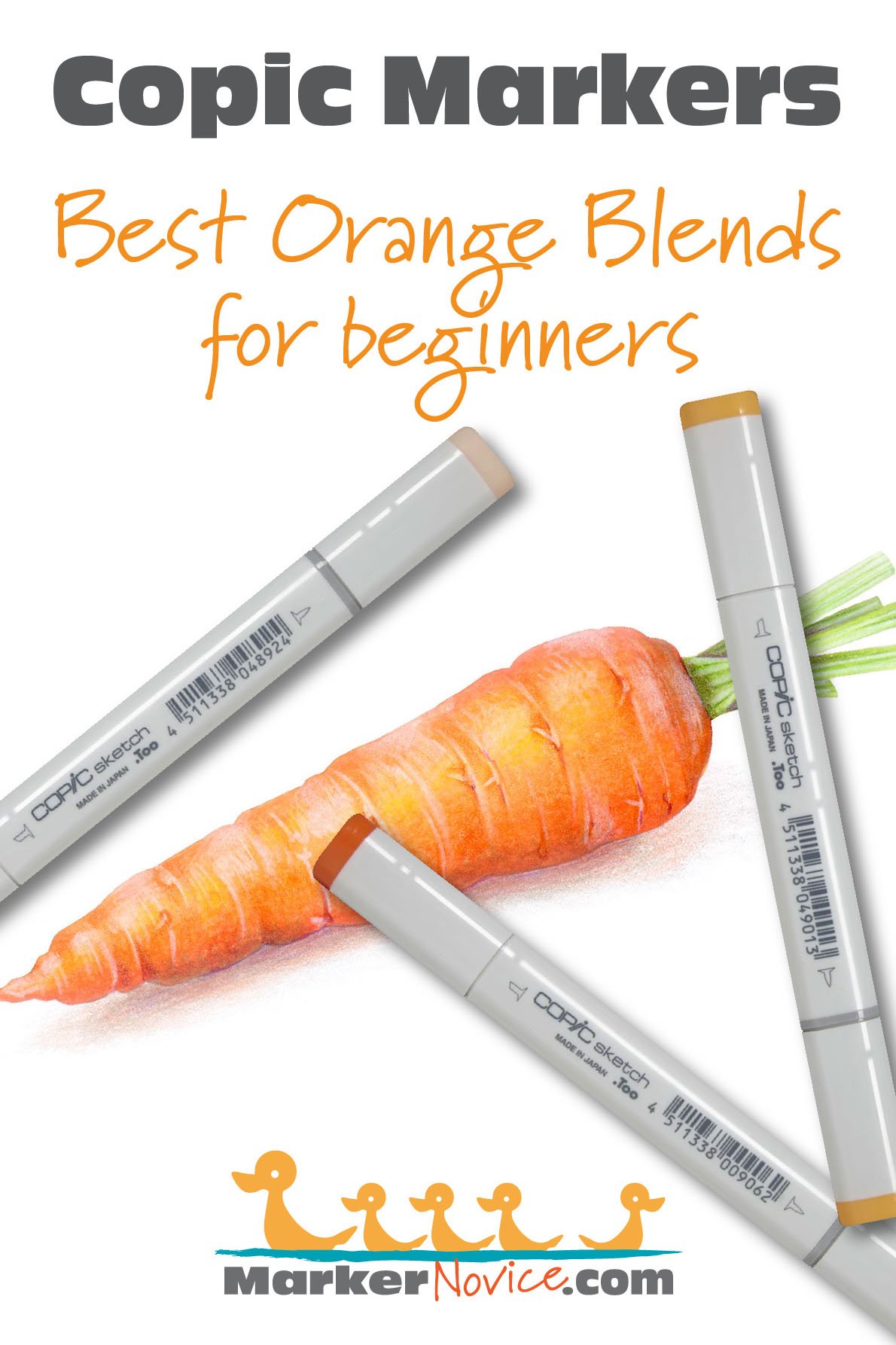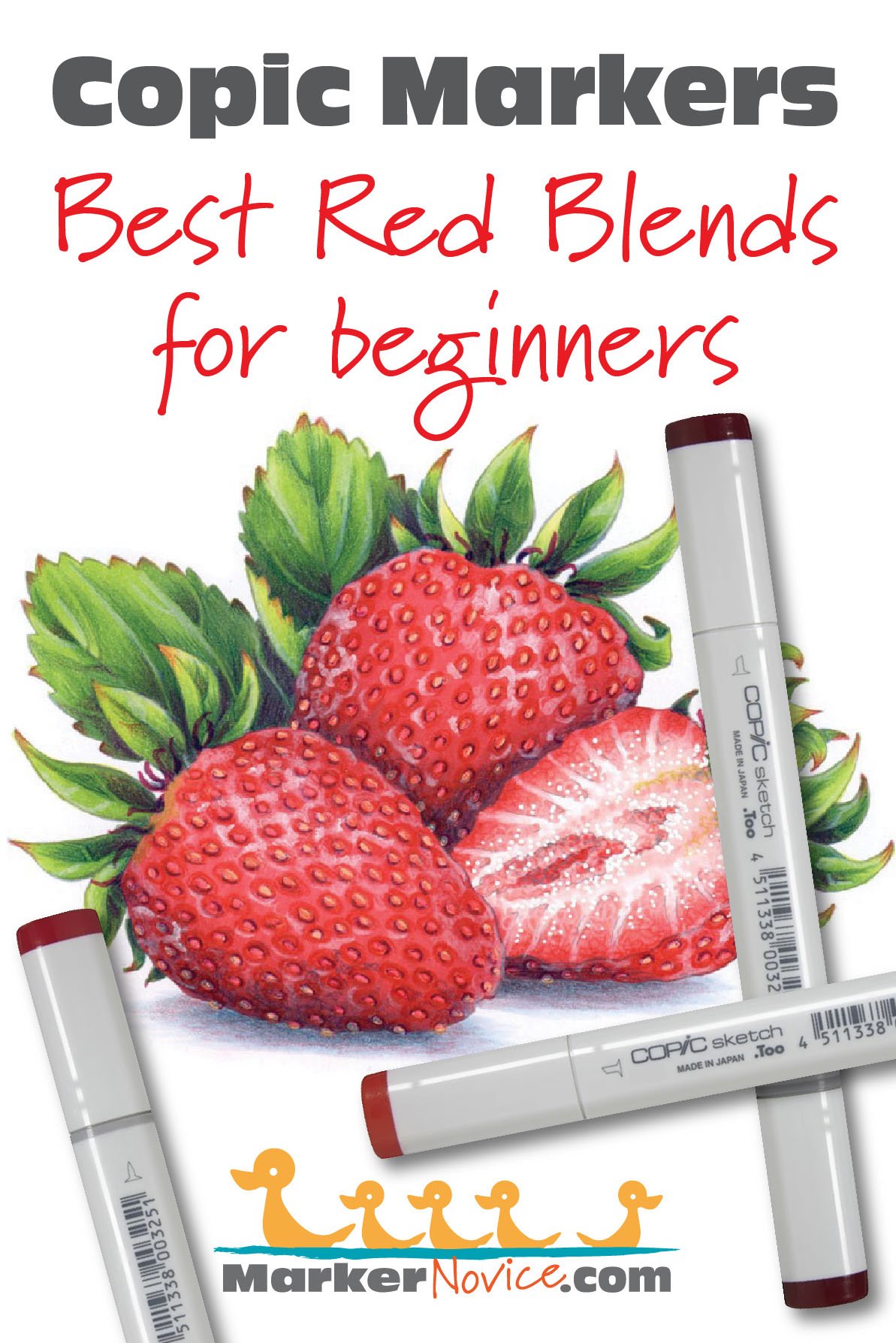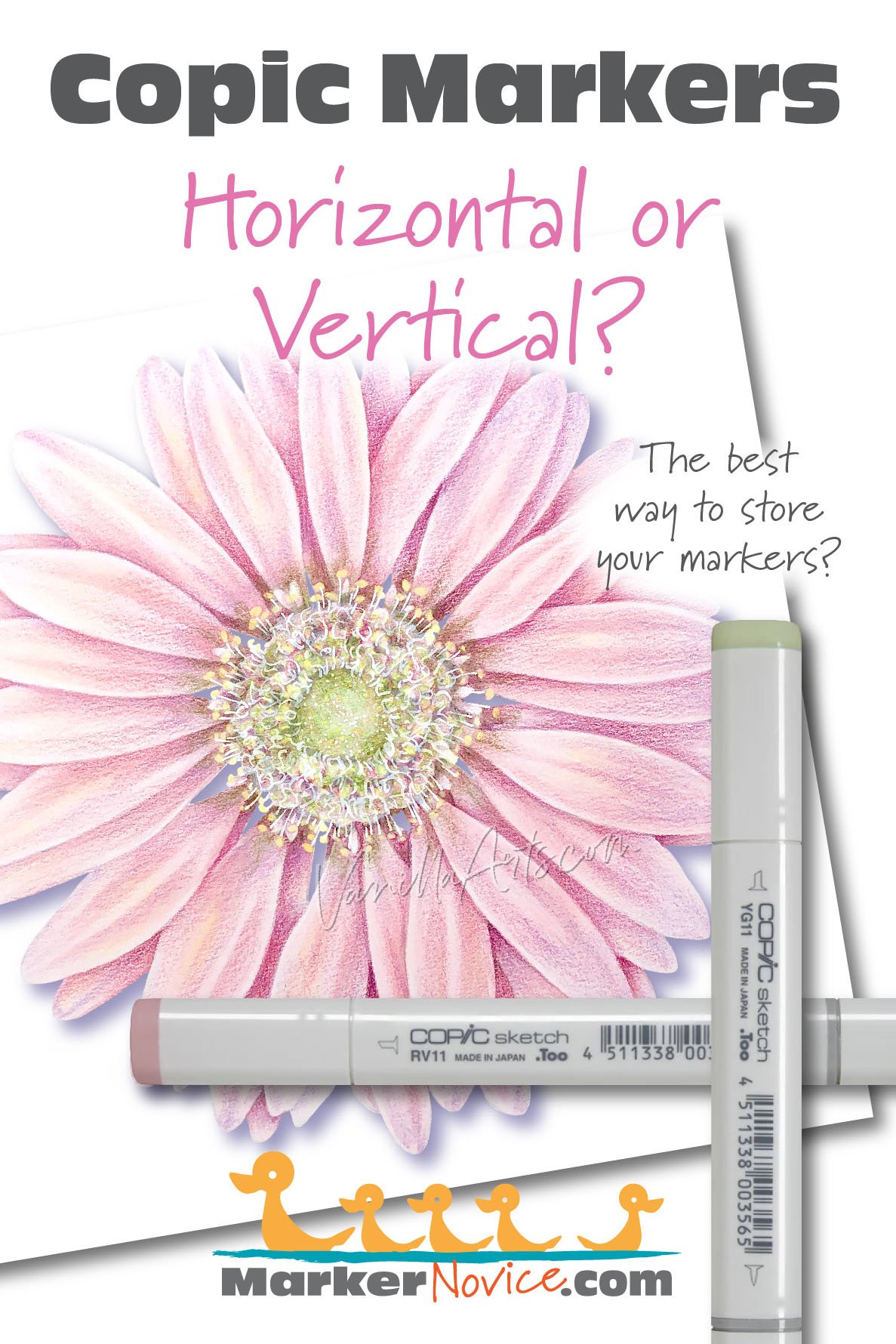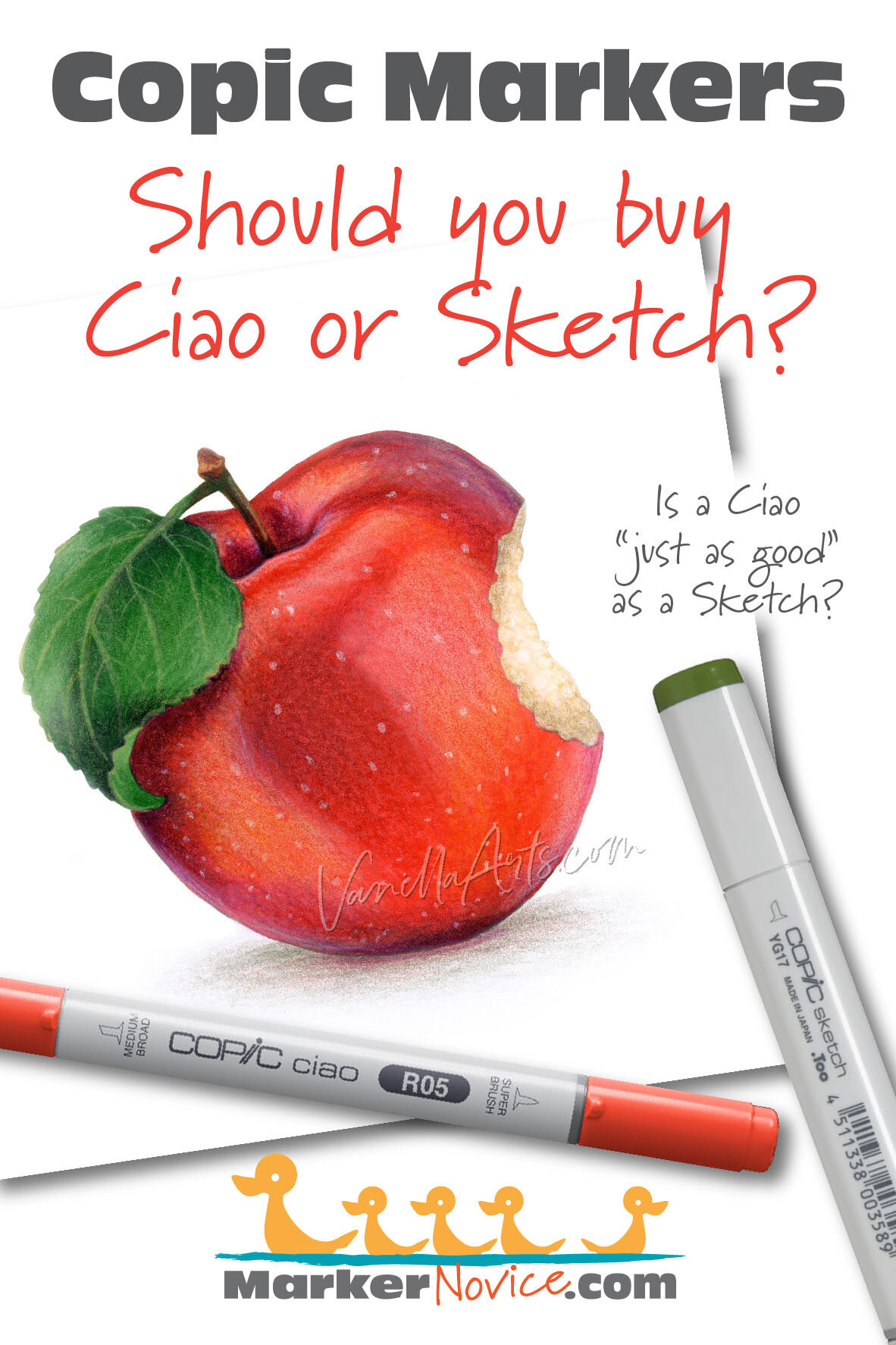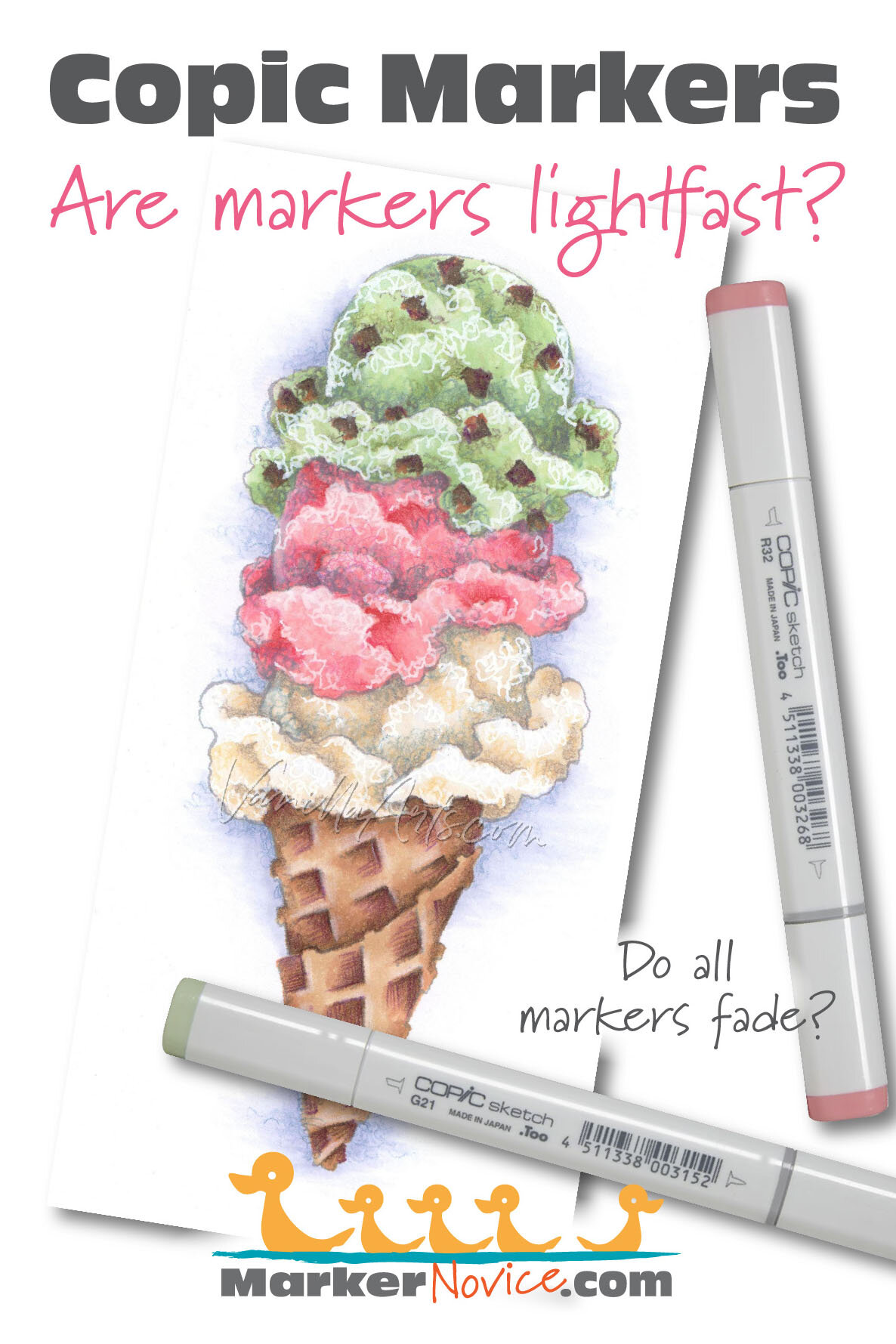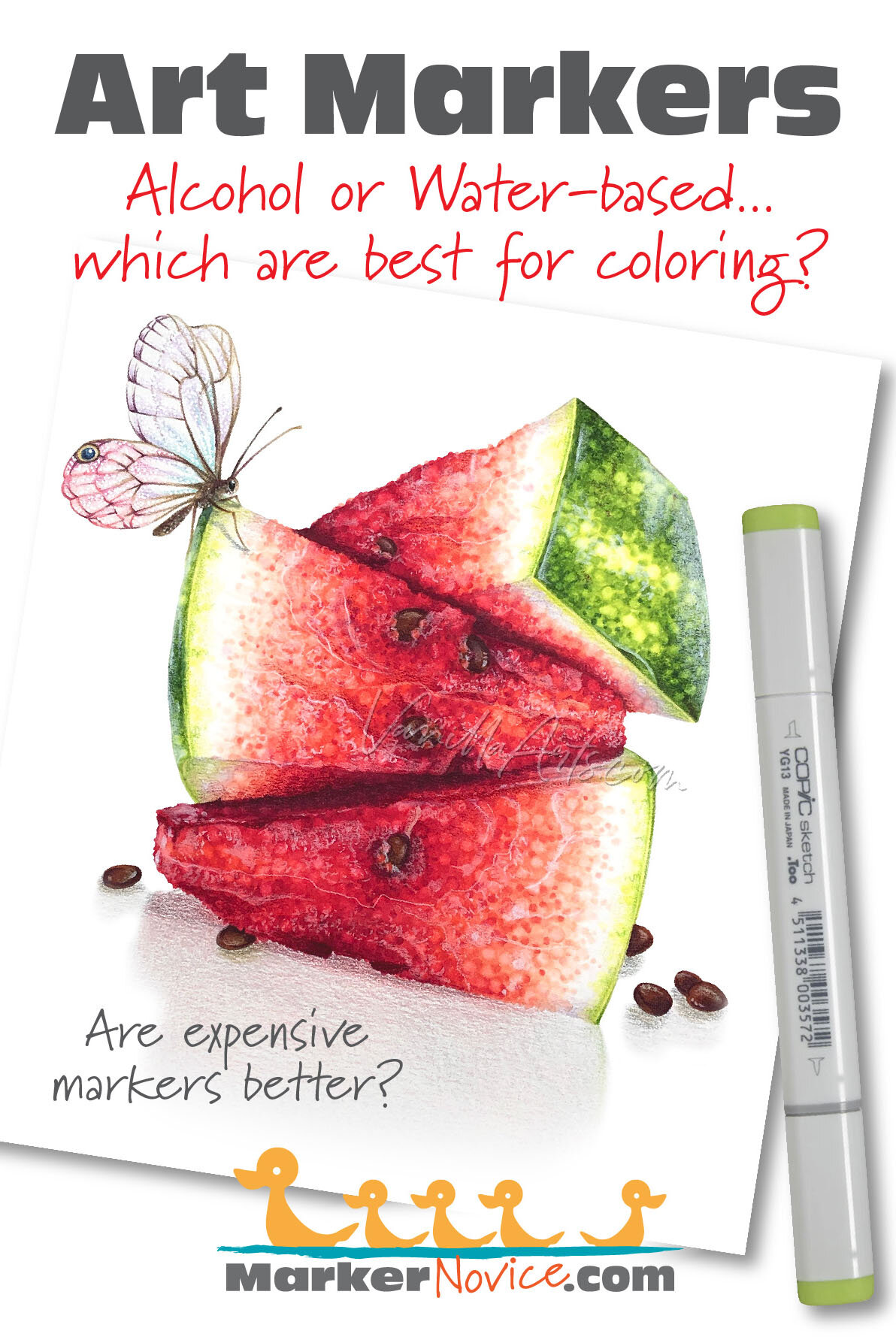B18 Lapis Lazuli is a red-leaning blue Copic Marker which mimics Cobalt Blue watercolor. An easy mid-blue for blending, B18 is great for beginners and useful in many color palettes. B18 is available in Copic Sketch, Ciao, and Classic marker styles.
Every Copic Marker has unique characteristics based on its unique ink formula.
Knowing how a color behaves will help you blend effectively and make art with confidence.
B18 Lapis Lazuli
Let’s take a closer look at this Copic Marker and its ink characteristics.
Temperature: A red-shift blue
Resemblance: Cobalt Blue watercolor
Actual Value: N7
All Copics are measured on a Neutral Gray value scale. The last number on the cap is supposed to indicate value but we’ve found discrepancies where the actual ink value is different than cap designation.
Cap Accuracy: The plastic on a Sketch marker resembles two coats of B18 ink.
Buildup: B18 reaches maximum color at three layers. This color has oily blotches at two layers but it quickly smooths at three layers.
Shattering: Easily shatters into blue with bright pink leakage.
Chromatography testing shows this ink’s behavior when it comes in contact with #0 Colorless Blender (solvent). High shattering colors may leak unexpected color when you make corrections or attempt to blend with any color that has a high solvent to colorant ratio. Shattering is not bad, it’s just something to be aware of.
Staining: B12 stains the paper blue.
Lift: B18 does not lift well.
See staining swatch. Sample was given 6 stripes of #0 Colorless Blender, drying between each stripe. Results indicate how much lifting you can expect.
Lightfast: We saw a minor bit of fading during the test period, about 10%
Samples were swatched on X-Press It Blending Card. 1 layer of ink was exposed to windowsill sunlight for 21 days. Approximately 10 hours of sun per day based on weather conditions. Note: we do not recommend displaying original Copic art under these conditions.
Natural Ink Family: B18 is the dark end of the B-Teen family. This family looks a bit green-shade at the light end and noticably red-shade at the dark end— either due to the bleaching effect of solvent or perhaps this ink family is not all from the same mother blue formula.
Family Members: B12, B14, B16, and B18
We include this information because many Copic users never think deeper than the letter groupings (R, BV, G, etc.). Every ink has its own temperature variations and underlying flavors. Understanding what an ink looks like in its different dilutions helps when creating your own blending combinations.
Complement: A yellowish orange like YR16
Underpaint: We suggest V17
This is simply one suggestion. Many possible colors exist. Test to find a color that pleases you.
Pushing Pencil: Prismacolor 931 Dark Purple pushes this color nicely.
VanillaArts.com (our sister site) teaches a Push & Pull technique for dimensional coloring. This is simply one suggestion. Many possible colors exist. Test to find a color that pleases you.
Vanilla Arts Classes using B18:
We continue to create new content and classes and we will update here as more become available.
Visit the workshop resource page at our sister site VanillaArts.com for a wide variety of Copic & colored pencil classes.
Vanilla Arts Digi Stamps using B18:
We continue to create new content and stamps and we will update here as more become available.
Visit the Stamp Shop resource page at our sister site VanillaArts.com for a wide variety of Vanilla Arts stamps.
Color palettes and swatches using B18:
Looking for beautiful color palettes?
We absolutely love The Color Catalog 1 & 2 from Sarah Renae Clark. It puts hundreds of Copic friendly color palettes at your fingertips.
(note: affiliate link)

